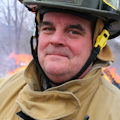Worcester, Mass. Deputy Fire Chief John Sullivan has a philosophy – Shave Every Day and his firefighters will be safe. Obviously, there’s more to his philosophy than simply taking soap and a straight-edge razor to his face to remove facial hair, but it helps to remind him of his mission in the fire department.
“I hate shaving, hate it,” admitted Sullivan to an audience gathered to hear his words of wisdom at Firehouse Expo on Friday, July 23. “But shaving every day reminds me that I need to act the part of a chief and model the behavior that I want from my people.”
View Full Coverage of Firehouse Expo 2010
In the light-hearted, often humorous class, Sullivan said the S in Shave is for Setting expectations high.
“If you don’t tell someone your expectations and set them high, they’ll never meet them,” Sullivan said.
The letter H is for Having the courage to say no, Sullivan said, noting that caring for firefighters is a lot like parenting. Officers need to set the rules and be willing say “no means no,” he said. Along those lines, the A is to make sure the officer is Always consistent.
Next is V for Voice your opinion, and Sullivan said it does no good to be silent as a chief officer. He recommends officers be a positive influence on their staff and he never misses an opportunity to teach.
E is for Empathize, Sullivan said, noting that it is one of the most important qualities to remember as an officer.
“Before you criticize, you must empathize,” Sullivan said, adding that chiefs must remember where they came from and how they made mistakes as they climbed the ranks. “Remember where you came from,” he said. “We all do something stupid every once in a while and empathy is a valuable skill.”
The first E in Every stands for Enforce the rules, Sullivan said.
“You need to enforce them equally,” he said, noting that it’s not good to enforce rules sometimes for some people; the firefighters need to know you are fair and have the same rules for everyone.
V is for Visit the troops, he said. As a chief officer, Sullivan said he makes a point to get out to the stations and see what the firefighters need and how their lives are going.
“When I first started doing it, everybody was saying: ‘What’s he doing here? What does he want?’” Sullivan said. After five to six months it became routine and firefighters accepted it, and most even appreciated it. Sullivan said he answered any question he could as accurately as he could, without getting into personnel matters, which helped build a tremendous level of trust and confidence.
“Trust is front loaded,” Sullivan said. “It’s not something you can develop at a scene, it comes over time.” He also said that people choose their leaders. Even though an individual has a title and a badge, it doesn’t mean he’s a leader.
“Leadership is given by those who follow and it can be taken away from someone anytime trust is violated,” he said.
The second E in Every is for Exercise humility, which goes hand in hand with empathy.
“Remember, you are a human being,” Sullivan said. “Don’t be a robot. Let them see you are human.” That’s why he always wanted to know about birthdays, anniversaries, deaths and important events in his crews’ lives so he could demonstrate some genuine care for his people.
The R is for Recognize excellence in your people, Sullivan said.
“Let them know you care,” he said. “You might not get the award for everything you put in for, but let them know you are thinking about them and you did care enough to put them in for some award.”
Y is for Yell less and listen more. Sullivan said that when the chief officer is calm on the radio and at the scene, so is everyone else.
“Calmness breeds calmness,” he said.
The D in Day is for Devote time to every person, Sullivan said. Letting your people know you care makes a huge difference in the amount of trust an officer is given, and trust is needed to lead effectively.
A is for Advocate for safety. Sullivan said that safety shouldn’t preclude aggressive firefighting, but it ought to be the filter, or eye glasses one should look through to keep everything in focus and on track.
And, lastly, the Y in day is for You. “You are the leader, act like it,” Sullivan said.
“Leadership is not about age or the time in the fire service,” he said. “It’s about having the courage to make decisions.”
About the Author

Ed Ballam
Ed Ballam served as associate editor for Firehouse. He is the assistant chief of the Haverhill Corner, N.H. Fire Department, and a National Registered EMT. He is also a Deputy Forest Fire Warden for the New Hampshire Division of Forests and Lands. Professionally, he's been a journalist for over 35 years working for a variety of publications, including employment as managing editor of a national fire service trade journal for more than a decade.